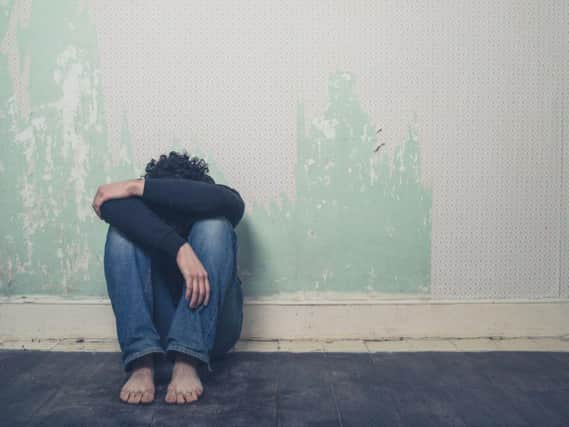The worrying numbers that show Yorkshire has highest suicide rates in the country


The Yorkshire Post says: We won't apologise for highlighting worrying trend of suicide in our county
Rapid progress has been made to prevent a growing number of people taking their own lives in the region, latest figures reveal, after it emerged Yorkshire had the highest rates in the country following a 30 per cent rise in just five years.
Advertisement
Hide AdAdvertisement
Hide AdBut despite efforts to address the issue, campaigners say, more can – and should – be done to ask questions and challenge perceptions over individual’s health and wellbeing.
“There’s more that we can do, when people are crying out for help,” said David Smith, chief executive of Hull and East Yorkshire Mind. “Too many of us are terrified to say the wrong thing and make it worse. The reality is, when someone is reaching out and is in distress, it’s very hard to say the wrong thing.
“Just reaching out can make the difference sometimes.”
This weekend marks World Suicide Prevention Day, and The Yorkshire Post has committed to shining a light on a critical issue, with nearly 500 people taking their lives in the region in 2016.
In December last year, it emerged Yorkshire had the highest suicide rates for the whole of the country, with areas including York and Rotherham standing out as particularly high.
Advertisement
Hide AdAdvertisement
Hide AdA raft of measures have been brought in over recent months, authorities have said, with official figures showing a 14 per cent fall in the region year on year.
Health Minister Jackie Doyle-Price said it was “heartening” to see the suicide rate at its lowest level in six years across the country, with new figures released this week. “Every suicide is a tragedy,” she added.
“We continue to work tirelessly to prevent further deaths, but we are beginning to see our work pay off with 95 per cent of local areas having a suicide prevention plan in place, including all those across Yorkshire.”
Nearly three quarters of those who take their own lives are men, the research shows. Those most at risk are aged 40-44, and have often experienced a breakdown of a relationship or a bereavement.
Advertisement
Hide AdAdvertisement
Hide AdIsolation and loneliness, particularly in rural communities, can impact on individuals’ wellbeing, experts have said, while austerity does play a part.
And while steps are being taken in the right direction, experts say, key to saving lives is the ability for communities to open up about what is happening.
“Suicide is still relatively rare, but it has a significant impact on the community,” said Andy Chapman, suicide prevention lead for York.
“And suicide is not inevitable – it is preventable. What’s important is simply having the confidence to start a conversation.”
Read more:
Advertisement
Hide AdAdvertisement
Hide Ad